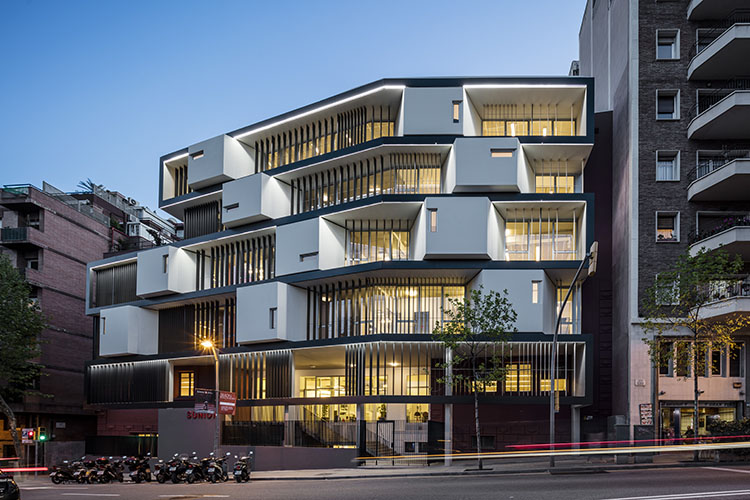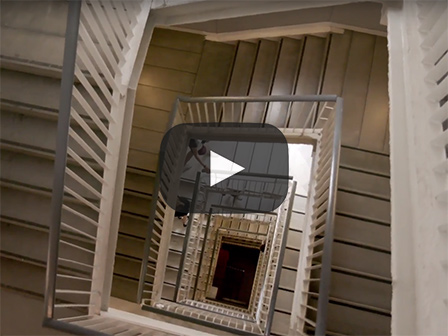- What we do
- Pan-European Guarantee Fund – EGF
- TechEU
- Institutional investors
- Equity products
- AI Co-Investment Facility
- Cleantech Co-Investment Facility
- Impact investing at the EIF
- Climate & Infrastructure Funds
- Technology Transfer
- European Angels Fund (EAF) - Co-investments with Business Angels
- Venture capital
- Lower mid-market
- Mezzanine Facility for Growth
- VentureEU
- EFSI Equity instrument
- Single EU Equity Financial Instrument
- Private equity secondary market transactions
- EIF-NPI Equity Platform
- ESCALAR Programme
- Debt products
- New ESIF ERDF Guarantee Fund initiative in Greece
- EFSI Private Credit Programme
- AGRI Guarantee Facility
- AGRI Italy Platform Uncapped Guarantee Instrument
- Credit enhancement
- Cultural and Creative Sectors Guarantee Facility (CCS GF)
- ENSI - Securitisation Initiative
- Erasmus+ Master Loan Guarantee Facility
- Skills & Education Guarantee Pilot
- EREM debt products
- Single EU Debt Financial Instrument
- Documentary Finance Facility – Bulgaria
- The SME Initiative
- Inclusive finance
- European Fund for Strategic Investments (EFSI)
- Regional Development - Country and sector-specific initiatives
- Innovation Romania Holding Fund
- NPI SM-CDTI Innvierte Tech Transfer and Deep Tech
- ILTE: Co-investments into private credit funds
- RRF Spain - Alternative Lending for Sustainable Development
- EquiFund II
- Normandie Garantie Agri
- FAIRE - La Réunion
- Auvergne Rhône-Alpes FEADER
- Recovery Equity Fund of Funds of Bulgaria
- Fons d’Inversió en Tecnologia Avançada (FITA) Catalonia
- Dutch Future Fund (DFF)
- Dutch Alternative Credit Instrument (DACI)
- PORTUGAL BLUE: a new initiative for blue economy investments
- JEREMIE Greece Reflows – Business Angels’ Co-Investment Equity Instrument
- German Corona Matching Facility (CMF)
- Portugal Growth programme
- Central and Eastern European Technology Transfer (CEETT)
- Croatian Growth Investment Programme (CROGIP) II
- Croatian Growth Investment Programme (CROGIP)
- Croatian Venture Capital Initiative 2 (CVCi 2)
- AGRI Italy Platform Uncapped Guarantee Instrument
- DISPOSITIF INSTRUMENTS FINANCIERS BOURGOGNE FRANCHE-COMTÉ
- ALTER’NA – ESIF EARFD Nouvelle-Aquitaine
- Baltic Innovation Fund 1 (BIF 1)
- Baltic Innovation Fund 2 (BIF 2)
- Central Europe Fund of Funds (CEFoF)
- Croatian Venture Capital Initiative (CVCi FoF)
- Competitiveness Fund-of-Funds for SMEs in Romania
- Deep and Comprehensive Free Trade Area Initiative East Guarantee Facility (DCFTA)
- EU4Business Capped Guarantee
- Dutch Growth Co-Investment Programme
- Dutch Venture Initiative (DVI-II)
- ESIF Fund-of-Funds Greece
- EAFRD FoF Portugal
- EAFRD FoF Romania
- The ERP-EIF Facility
- ERP-EIF Co-Investment Growth Facility
- The LfA-EIF Facilities
- The German Future Fund (GFF) - EIF Growth Facility
- INAF – French National Agricultural Initiative
- ESIF Energy Efficiency and Renewable Energy Malta
- Regional Fund-of-Funds Romania
- ESIF Fund-of-Funds Czechia
- The Silesia EIF Fund of Funds
- La Financière Région Réunion
- The EIB Group Risk Enhancement Mandate (EREM)
- EstFund
- Call for Expression of Interest for FOSTER II
- Greater Anatolia Guarantee Facility (GAGF)
- G43 - Anatolian Venture Capital Fund Project
- InvestBG Equity Instrument
- JEREMIE
- Romania Recovery Equity Fund of Funds
- JEREMIE Romania Reflows – Equity Instrument
- Luxembourg Future Fund 1 (LFF)
- Luxembourg Future Fund 2
- Mezzanine 'Fund of Fund' for Germany (MDD)
- NEOTEC resources
- Polish Growth Fund of Funds (PGFF)
- Portugal Venture Capital Initiative (PVCi)
- Scottish-European Growth Co-Investment Programme
- SEGIP VC Fund - Call for expression of interest
- Swedish Venture Initiative (SVI)
- Turkish Growth and Innovation Fund (TGIF)
- Western Balkans Enterprise Development & Innovation Facility (WB EDIF)
- EAFRD FoF Greece
- Irish Innovation Seed Fund (IISF)
- RRF Czech Republic Fund of Funds
- EU4 Business Guarantee Facility and Grant Facility Call for Expression of Interest
- JEREMIE Romania Reflows
- Fomento Portugal Tech
Archikubik: productive landscapes

“Architecture is not just about space. It’s about politics, economics, culture and society. It’s about establishing relationships between people. There is always much more to architecture than meets the eye” says Miquel Lacasta, who co-founded Archikubik alongside Marc Chalamanch and Carmen Santana. An architectural firm based in Barcelona – or rather, in their own words, “an ecosystem of architecture, urbanism and urban planning,” Archikubik collaborate as closely with philosophers and sociologist as they do with engineers, and place great emphasis on innovation in finding solutions for modern challenges.
“By 2050, 70% of the world’s population will live in cities. At the same time, cities are responsible for 70% of our CO² emissions. I think we really need to work on improving the way our cities are structured…” he adds. “As an example, we are currently working on an urban project where 35% of the outdoor space is reserved for what we call ‘km-zero’ agriculture. That means growing food locally for the immediate needs of the surrounding area, thus minimising the need for transportation and related emissions.”
Archikubik focuses on the constant development of synergies and exchanges between public space and private participative space, rethinking our cities from the concept of the e-polis, the polis of the information society, as a place for learning, debate, diversity, respect and exchange.
“The world around us is constantly changing. Things like ageing populations, the potential of robotics and autonomous vehicles, real-time big data and the decentralisation of energy production all affect the way we live our lives and interact in space. Our buildings need to be flexible and adapt to these changing realities,” Miquel argues.
What is not changing, however, is the very particular business model of architectural firms: “When we work on a project, we’re normally looking at 2-3 years before we see any form of return” Miquel explains, “and this creates cashflow problems. We somehow need to finance this gap.” To bridge the gap, Archikubik received an EU-guaranteed loan through CERSA, backed by the EIF. “This gave us some breathing space and is important in improving our cashflow issues.”
“It’s a bit like the pharmaceutical industry,” he adds, “we have a lot of up-front investment, like planning, design, studies, but the project will only deliver return at the end of this long cycle. And with all the political, social and economic dimensions of our projects, it’s normal that these processes take a long time.”
Company: Archikubik (Spain)
Type of business: architecture
EIF financing: Cultural & Creative Sectors Guarantee Facility (CCS)
Financial intermediary: CERSA (Avalis)
For further information about EIF intermediaries in Spain, please refer to: http://www.eif.org/what_we_do/where/es
Copyright ©
European Investment Fund – The European Investment Fund is not responsible for the content of external internet sites.



